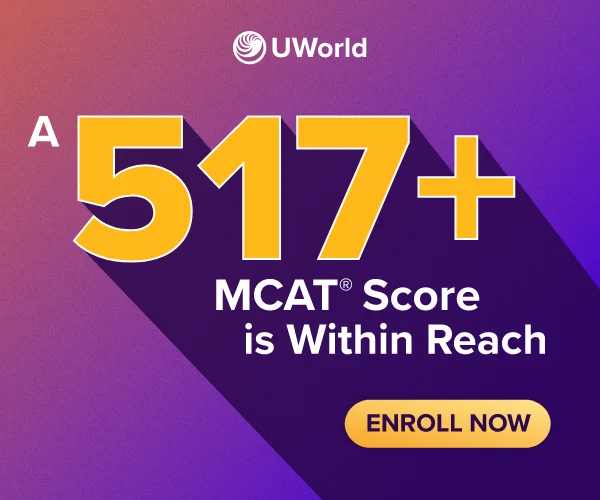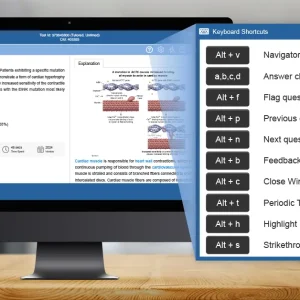If you're a high-MCAT, low-GPA applicant, you already know the math doesn’t add up, and you’re likely feeling a mounting anxiety about your application.
In the medical school admissions world, you’re what we call a “splitter,” a test-slayer with a transcript that whispers instead of roars. Maybe your GPA took a hit after a tough semester, a family emergency, a misstep in time management, or four years of trying to outrun imposter syndrome. Maybe you changed your major from engineering after discovering organic chemistry was actually your thing (too late, of course, for your freshman-year GPA). Or maybe you just bloomed a little late.
Whatever the case, you’re now staring at a beautifully balanced MCAT score and wondering if it’s enough to tip the scales.
Let’s talk about it.
The Psychological Weight of Being a Splitter
Most students feel shaky about their medical school application. Yes, even the ones with 519s and 3.99s. But splitters often carry a particular kind of academic shame, and it seeps into everything. You study harder than ever, but worry no one will see past the transcript. You have a star-spangled MCAT, and still, you question whether you belong. The voice in your head says, “If only I’d figured things out sooner.”
Here’s the truth: every admissions committee knows that GPA and MCAT measure different things. GPA tells a story about consistency. MCAT tells a story about potential. Both matter, but neither can capture the full arc of who you are becoming.
Perception vs. Reality
The perception: “I’m a risky admit.”
The reality: Medical schools admit splitters all the time. Yes, even That One™️.
In fact, many MD and DO programs explicitly look for upward trajectories and intellectual grit. A high MCAT score signals that your brain is fully equipped for med school. The key is helping schools understand what changed. Why now? Why this version of you?
If your MCAT score is above the 90th percentile and your GPA is around or under 3.4, you’re not alone, and you’re not out of the running. But you do need to be strategic.
Here’s How to Shift the Odds in Your Favor
- Own the why.
- Show the receipts.
- Prove you’re in this for the long haul.
- Tailor your school list.
- Craft a cohesive narrative.
- Don’t let the numbers define your confidence.
Use your personal statement and (if needed) a GPA addendum to explain, not excuse, your academic history. Be specific. Were you working full-time? Supporting a family member? Struggling with executive function or untreated ADHD? Overscheduled with extracurriculars? Tell the truth with clarity and compassion. Then show what changed. Admission committees want to know that you have a plan to make your medical school GPA a different story.
Highlight your academic rebound. That A in Biochem? Your upward-trending postbac? That master's program with a 3.8 GPA? These are proof of your readiness. Let your activities section do double duty: Yes, you're mentoring underserved students, but you’re also tutoring organic chemistry. Make your academic fluency shine in unexpected places.
For example, one applicant I worked with took the chemistry class where she struggled and worked her way into tutoring it. Her MCAT showed she’d nailed the content, and her activities section told us why.
Let’s pause here for a reality check. A high MCAT can signal academic aptitude, but it doesn’t always prove you have the stamina to thrive in medical school. Admission committees know this. A sluggish GPA sometimes raises concerns about follow-through: Was this student just naturally smart, or are they ready to work? I’ve seen the National Merit to burnout pipeline play out in real time. That’s why your application, and especially your experiences, need to prove you’re not just capable, but committed. Rigorous postbac coursework, summer bridge programs, clinical roles with real responsibility, and strong letters from people who can vouch for your work ethic all help to allay this concern. Your application shouldn’t read like Mom’s dream or Dad’s plan. Show the committee that it’s your dream and that you’re ready to earn it.
Balance is everything. Apply to a range of schools, MD and DO, that consider holistic review and demonstrate flexibility with GPA benchmarks. Research each program’s mission and median stats. Cast a wide net, but not a blind one. Medical schools won’t tell you the lowest GPA admitted in each class, but a quick spelunking tour of a website that rhymes with “edit” will give you a clue about splitters who succeeded and what school they attend.
Your MCAT isn’t a one-time fluke. It’s part of a bigger story. Make that story compelling, not apologetic. Show how the obstacles that derailed your GPA are now the fuel behind your fire. You are not your transcript. You are the arc of your trajectory, and you should throw your shoulders back and predict your future USMLE success, since the MCAT is a great indicator of your test-taking ability—something schools know matters long past your acceptance letter.
This is the most important tip I can give you. Confidence is contagious. If you shrink yourself in interviews, they’ll believe you don’t belong. If you step forward with conviction and clarity, knowing what you bring to the table, they’ll listen. This isn’t a recommendation to brag. Don’t tell them what makes you special, show them. Make sure you’ve convinced yourself first so it doesn’t appear fake.
What UWorld Can Do for You
When you're a splitter, your MCAT is the loudest advocate in your application file. And that’s where UWorld earns its stripes.
UWorld’s MCAT Prep Course goes beyond teaching you to “game the test.” It was designed to deepen your understanding of the material and simulate the kind of thinking you’ll use in med school and beyond. For many students, it becomes the study partner that restores faith in their intellectual ability.
High MCAT scores won’t come from flashcards alone. You need the kind of deep, concept-driven study UWorld is known for. That’s the level of preparation that splitters need and deserve. Students just like you have already proven this.
Final Word: You Belong Here
Your GPA doesn’t disqualify you. Your MCAT doesn’t make you invincible. Together, they tell a nuanced, powerful story, and you have to know how to tell it.
You are not an exception in need of justification. You are an example of what self-awareness and strategic preparation look like in real life. And that, friends, is exactly the stuff future physicians are made of.
Autumn Lockett is the founder and CEO of GradMissions, the leading admissions consultancy for top-tier medical, law, and graduate programs. She can be reached at [email protected].





